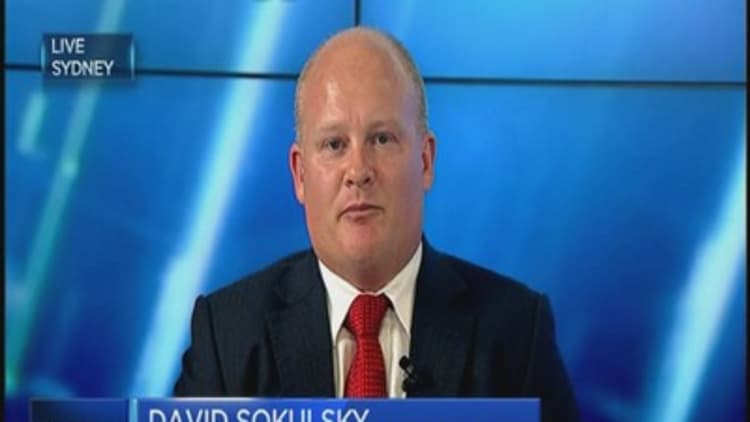A critical question in today's world is how to stimulate global, sustainable and equitable growth. Addressing this question is imperative to driving long-term economic value, enabling individuals to improve their lives and ensuring a healthy future for the world we inhabit.
It is deeply fitting that these discussions exploring this challenge are being held in China, which has experienced a degree of growth and development that was almost unimaginable 30 years ago, when I was an exchange student studying at Peking University in Beijing.
Today, global growth indicators paint an unsteady and uncertain picture. Past techniques of stimulating economic value creation must be supplemented to meet today's conditions. Economic fragility threatens wages and living standards. Billions more people must find paths of greater economic opportunity.

Simultaneously, we must find solutions that are sustainable for economies and for our planet.
The forthcoming meeting in Dalian, China, explores innovative and entrepreneurial responses to these challenges. It will do so within the context of an interconnected world: our economies are interconnected, our technologies are deeply connected, and of course the effects on our planet are interconnected.
Within this framework of interconnectedness, innovation and technology will be key drivers of global, sustainable and equitable growth.
To get there, we must rely on one of the most important technological innovations of our time – the internet. It connects us, bringing together people with varying ideas and backgrounds; it fosters innovation and opportunity.
The internet has changed the way we work, learn, create, interact and share. And yet, in some ways, it's still in its early stages. One estimate shows that extending internet access in developing nations to the levels of today's developed countries could increase long-term productivity by as much as 25 percent.
This meeting - the World Economic Forum's ninth Annual Meeting of the New Champions on innovation, science and technology - offers a unique opportunity to advance this discussion.
Read MoreBlackRock's bond king: Normalize rates or else ...
First, the forum convenes a wide range of decision-makers, and mixes in an impressive set of experts and innovators. The range of people and insights that address complex topics is a rare and valuable asset. The mixture of economic expertise with the greatest minds in technology and innovation is another unusual and valuable aspect of this meeting.
In addition, the forum is an advocate of multi-stakeholder collaboration.
This process brings together governments, business and civil-society groups in a shared decision-making process. The multi-stakeholder approach is critical in the development of global, sustainable and equitable growth. We need governments to represent their citizens. We need business to be an economic engine.
And we need civil-society groups to represent all the aspects of human dignity and citizenship that aren't always addressed through economic development.
Without a combined approach, we risk polarized societies, and uneven innovation and economic growth.
Innovation is another focus of the 2015 Meeting of the New Champions.
It's something that grows from a mindset backed by a supportive economic and social setting. It can be disruptive, where immense economic and social value is unlocked by shifting for ever previously successful business models. The industrial revolution is a clear example of this, as is the internet.
Read MoreWhy this market is oversold: Insana
When innovation is disruptive, we see stronger efforts to stop it, to harness it, and to reign in its impact in ways that don't challenge or make existing models obsolete. Resolving these tensions in ways that allow innovation to thrive is critical. A fierce commitment to innovation is extremely important in creating significant and long-term opportunities.
Today's challenge is to stimulate economic growth that is global, equitable and sustainable.
We have an opportunity to enable the entrepreneurial and innovative spirit in each of us – empowering innovation wherever it comes into being.
Mitchell Baker is executive chairwoman of the Mozilla Foundation and co-chair of the World Economic Forum's Ninth Annual Meeting of the New Champions, being held on September 9-11 in Dalian, China.

